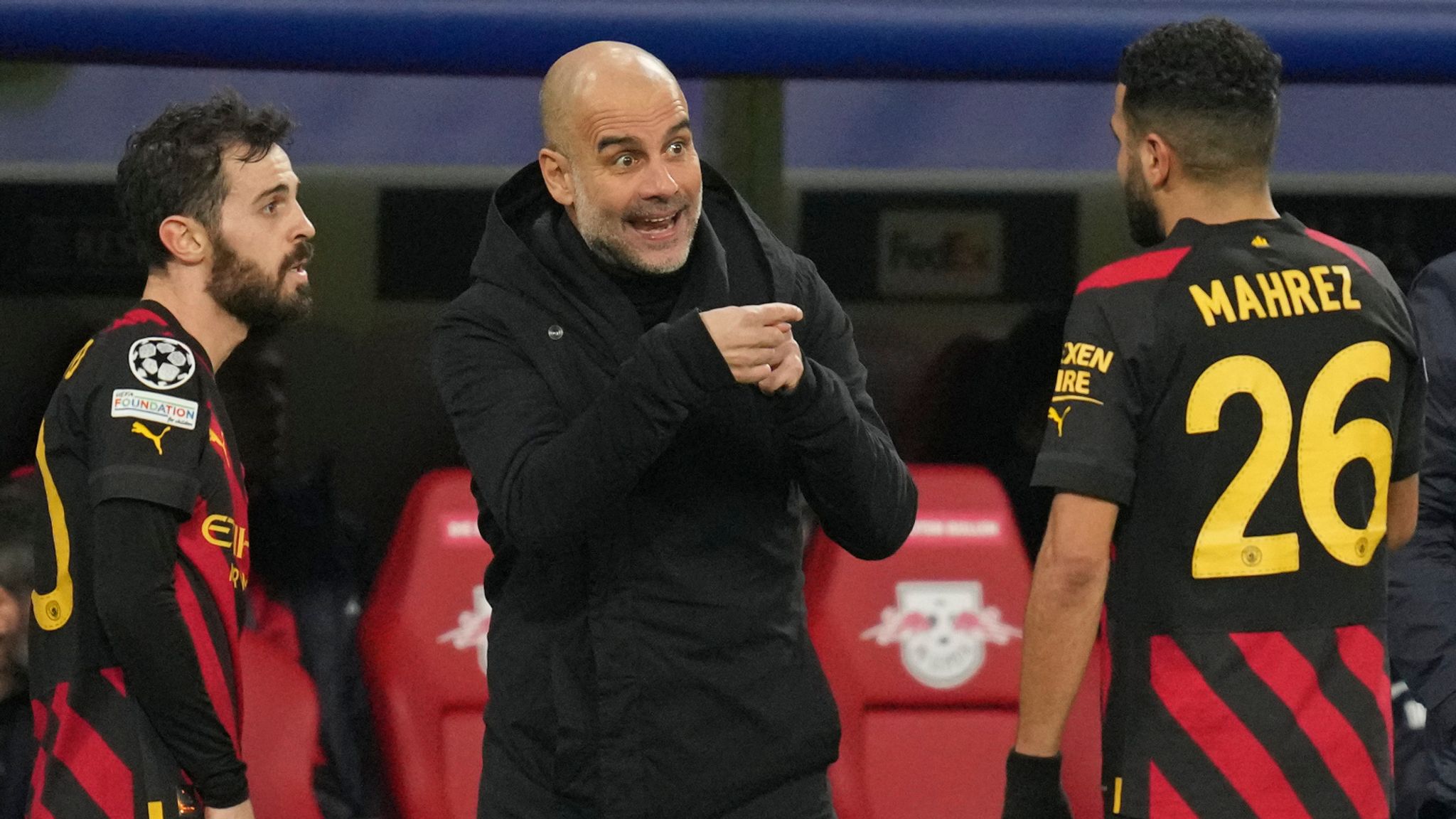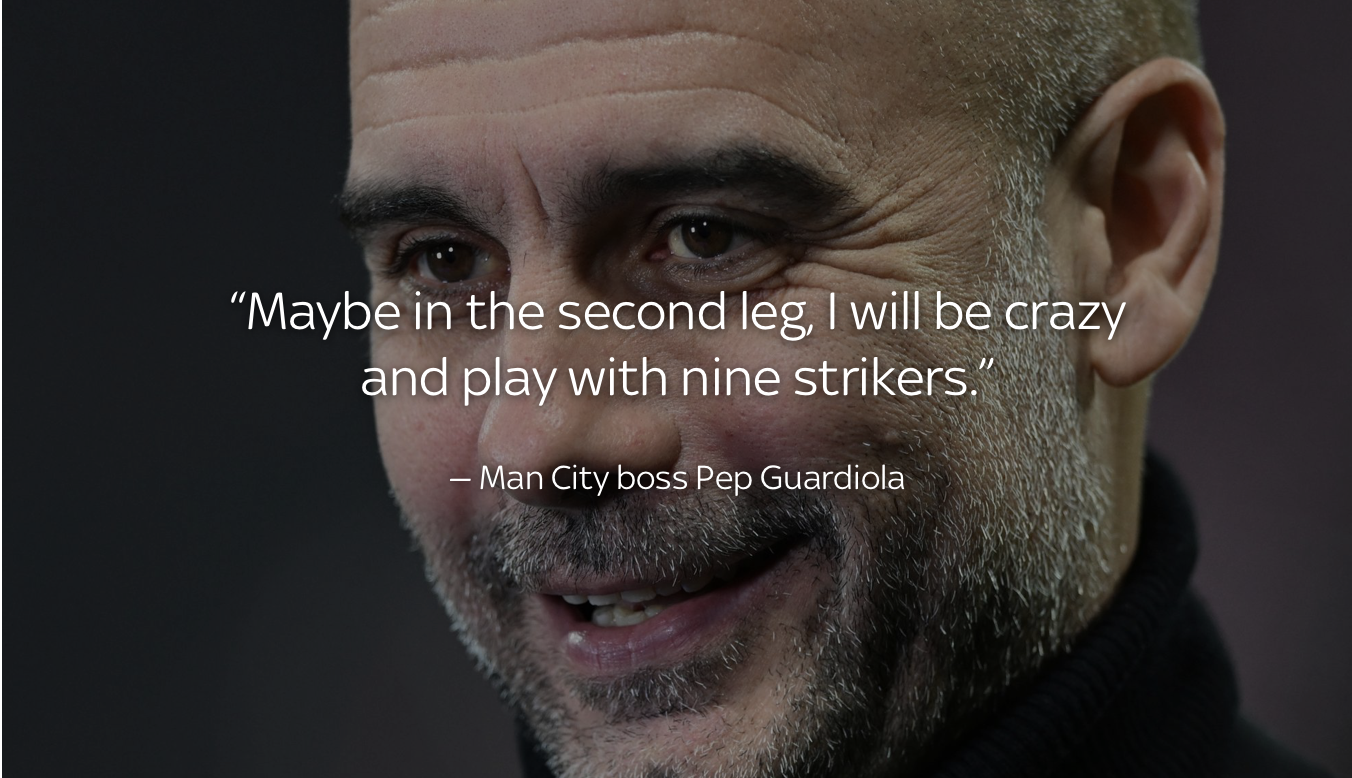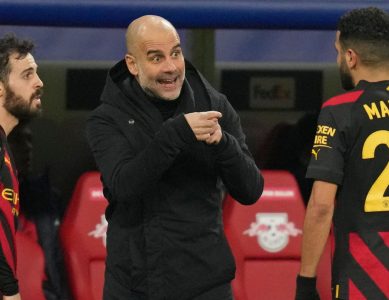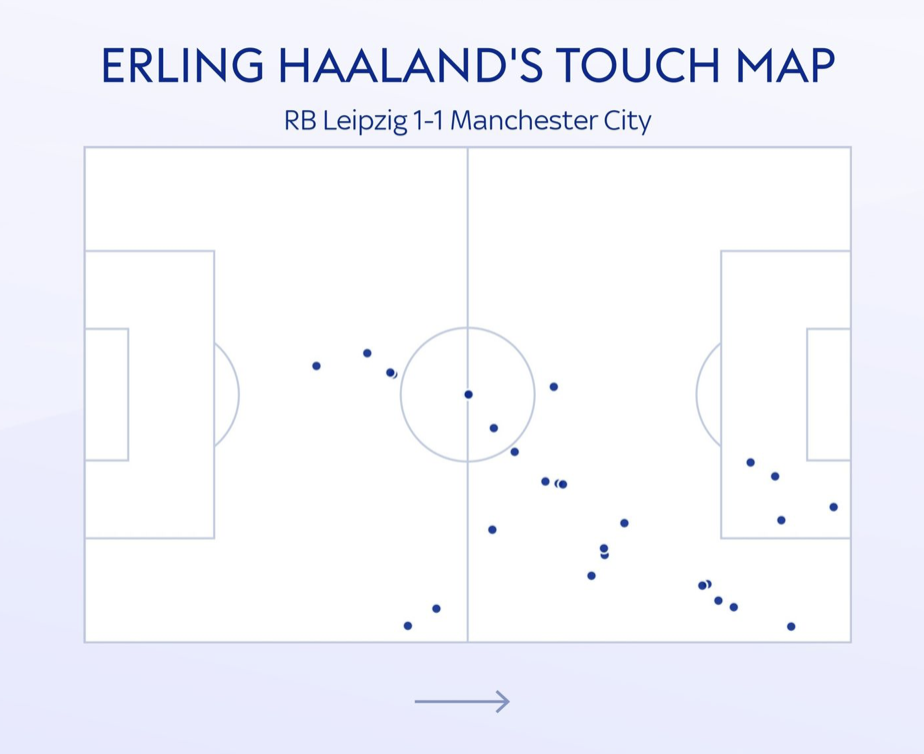A draw in Germany was perfectly fine then, against a side that had won 10 consecutive home games prior to a recent 2-1 loss to high-flying Union Berlin.
So Phil Foden and Julian Alvarez would remain on a City bench that beyond Scott Carson and Kalvin Phillips resembled a creche, so supplemented it was by academy graduates.
As Ruben Dias led valid appeals for handball against Henrichs at the blowing of the final whistle, Foden slumped in his seat clearly frustrated at having not been involved.
City had 74 per cent possession and a passing accuracy of 94.6 per cent in the first half, while only facing one shot. In the second, they had 49.2 per cent of the ball and a pass success rate of 84.7 per cent, facing six shots.
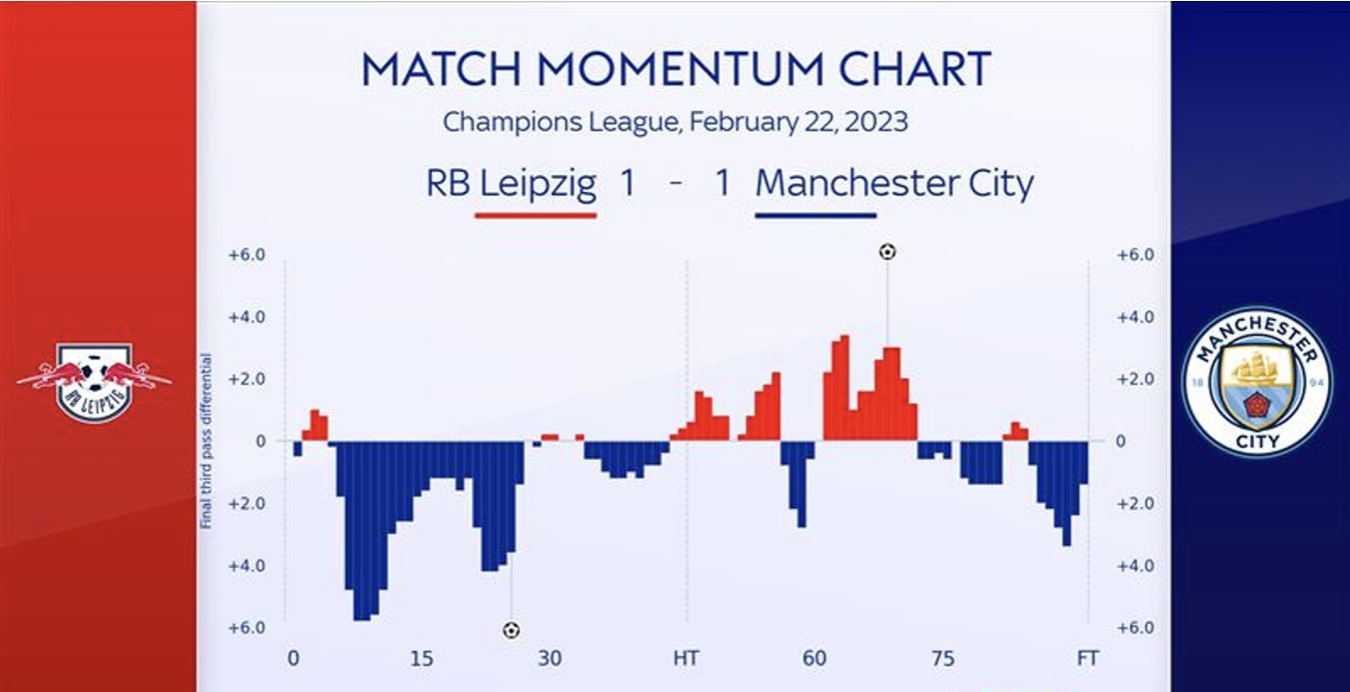
Guardiola said Leipzig, who had lost once in 20 games, should be respected by the media for their achievements both at home and abroad.
He said: “I had the feeling that the game would be decided in the second leg. Normally there is one misconception in football that, after the way we played the first half, people are going to say ‘how bad was the second half?’
“But why can’t you think Leipzig is a good team? They beat Real Madrid here, were much, much, much better than [against] Bayern Munich in the second half.
“I have a lot of respect for Leipzig. Always you [the press] talk about how bad one team is.
“Why not talk about how good the other one is. We have had four games in 10 days and the Arsenal one was really tough. We have had injured players and I am so delighted with the game we have played.”
It has been argued Guardiola has tinkered too much with his defensive combinations so far this term.
The latest craze has been to field Bernardo Silva as an auxiliary left-back. Guardiola said his pressing attributes in that area of the pitch are better than Oleksandr Zinchenko and Fabian Delph. Who are we to disagree? When he sees his players up close and personal every day.
In the Premier League, Guardiola has made 56 changes to his starting XI across 24 games. It is hardly ideal to build consistent relationships, forge partnerships and a level of understanding seen in most title-winning teams, but Guardiola’s City are not like most title-winning teams.
After 24 Premier League games last season – the equivalent stage as this – Dias and Aymeric Laporte had been paired in central defence on 17 occasions. Stones had started four games, Ake just three.
This time around, Laporte and Dias have only started once as a centre-half pairing in a back four, against Brighton in October. Dias has just completed three successive 90 minutes for the first time since that 3-1 victory.
On five occasions, Guardiola has used a back three, including most recently against Forest. Ake and Dias have been paired four times, but half of those came in the opening two games of the league season. Only Akanji and Ake have partnered each other on as many occasions, but still no more than four.
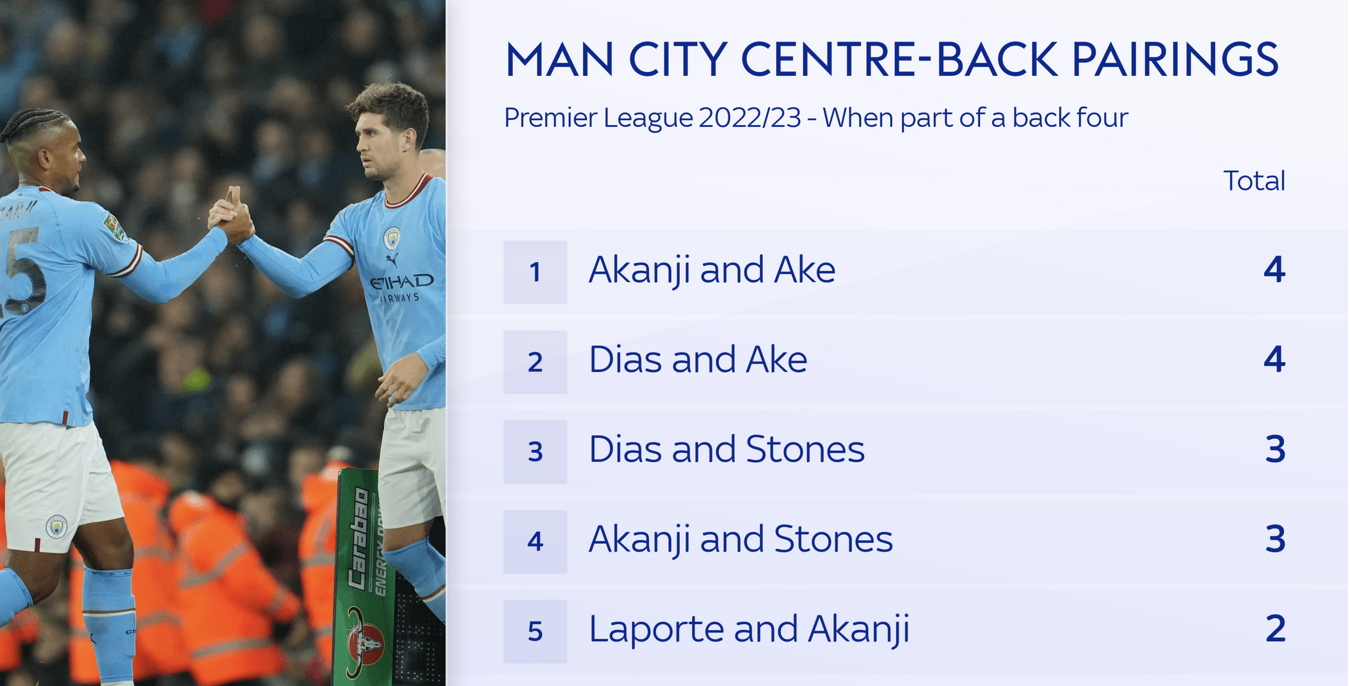
It has been Stones and Dias three times. Only on four occasions has Guardiola stuck with the same defensive combination as the previous game across those 24 league games.
It is part of the puzzle he likes to set his players and it is what makes their project one of the world’s most watchable. When improvement to personnel becomes only marginally possible, this is Guardiola’s way of renovating when winning becomes too monotonous.
Erik ten Hag has settled on a settled side and is winning matches. So too has Mikel Arteta. But what invariably happens when key components suffer that common football occurrence of worn out muscles, rhythm invariably goes with it.
When you consider City have so far played 37 matches in all competitions – a number that will reach a minimum of 53 – it is perhaps more understandable why players such as Foden – used throughout the World Cup by Gareth Southgate – are having their minutes managed.
Bringing an offensive player on when faced with such a shift in momentum as witnessed on Wednesday night might well have played in City’s favour, but it was Guardiola’s view that under a barrage of pressure, the best tactic was to do nothing at all.
What City had produced in that first half without the creativity of Kevin De Bruyne will be of consolation to him, but what came after the interval underscores just why the Belgium midfielder was protected for what lies ahead.
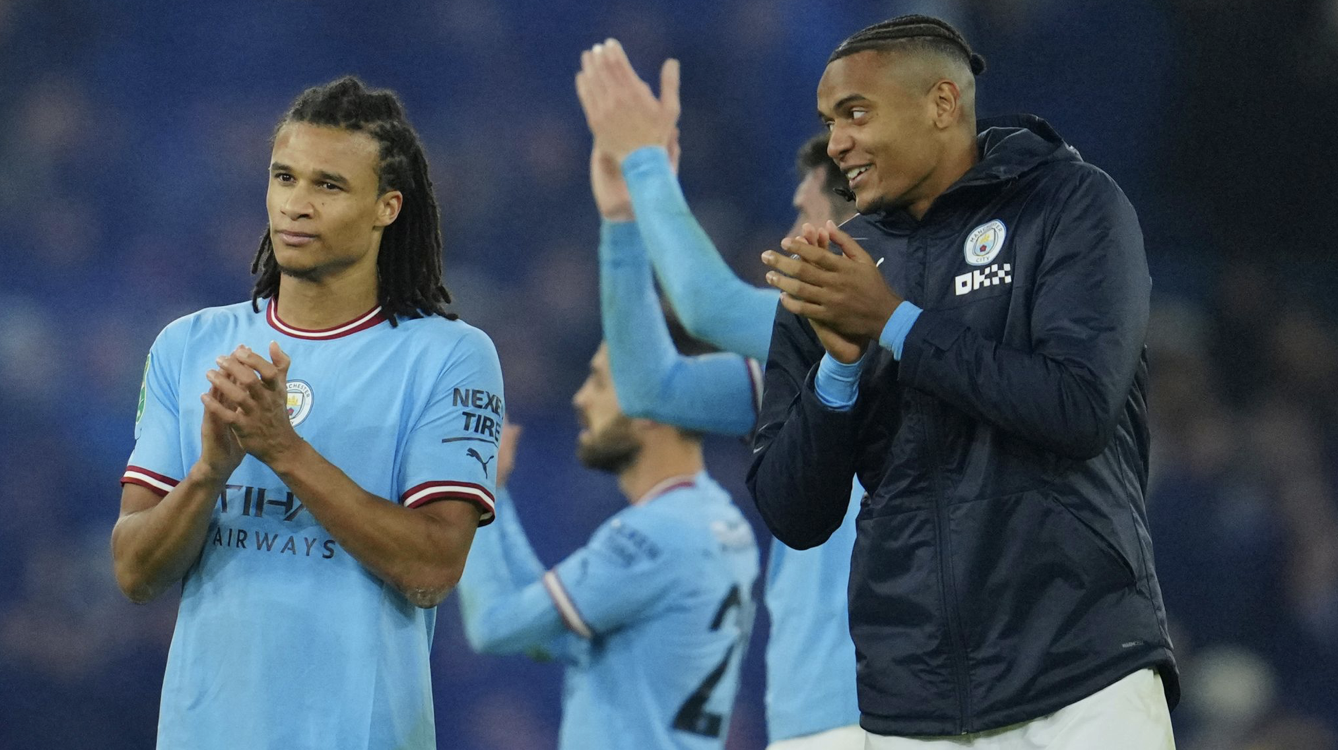
The result came after City were also held in similar circumstances by Nottingham Forest last weekend, a result which saw them lose ground in the Premier League title race.
They will attempt to get back to winning as they travel to Bournemouth on Saturday.
Gundogan feels City have a responsibility to put things right after a “sloppy” performance at RB Leipzig.
“I think after the first-half performance, it felt a little bit disappointing not to get the win,” he said on City TV.
“I felt that our game was a bit sloppy in the second half, at least in some periods. We probably lost some easy balls, allowed them to get opportunities. It’s a bit a bit like we gave parts of the second half away easily.
“Unfortunately we were not able to maximise our gain when the momentum was on our side – by scoring maybe one or two more goals – and then when the momentum was on their side, we were not able to minimise the damage.
“But this is the Champions League, so simple things get punished quite quickly.
“We know how difficult it is to proceed but it is our responsibility, with the squad that we have, to always get far and to do better and better. And that’s the aim for the for the second leg now.”
“Bournemouth won’t be easy but it’s nothing that we that we didn’t do in the past. We have a good group and everyone is needed and I think we’re going to be ready for Bournemouth.”
Joao Cancelo’s belief he should to be playing more led to Guardiola dispensing with the Portugal defender last month.
Complying with the rules of Pep’s roulette has brought reward for those who have stayed on the wheel – but when his side fail to make their first-half dominance count from the land of Robin Hood to the German state of Saxony, it is the Catalan who leaves himself open to criticism.
Guardiola reaffirmed his commitment to City earlier this month, stating the bond has never been stronger following the financial allegations made against the club. What drives him on more than anything is that sense of a story still left untold.
“We knew the game was going to look like it did; we planned for the game to look like it did,” said Forest boss Cooper last weekend.
“You don’t say it too much before the game, but you are playing against an incredible team; for me, probably the best team in the world at domestic level, and I think you have to sacrifice the ideals in the game that you want to try to get something out of it.
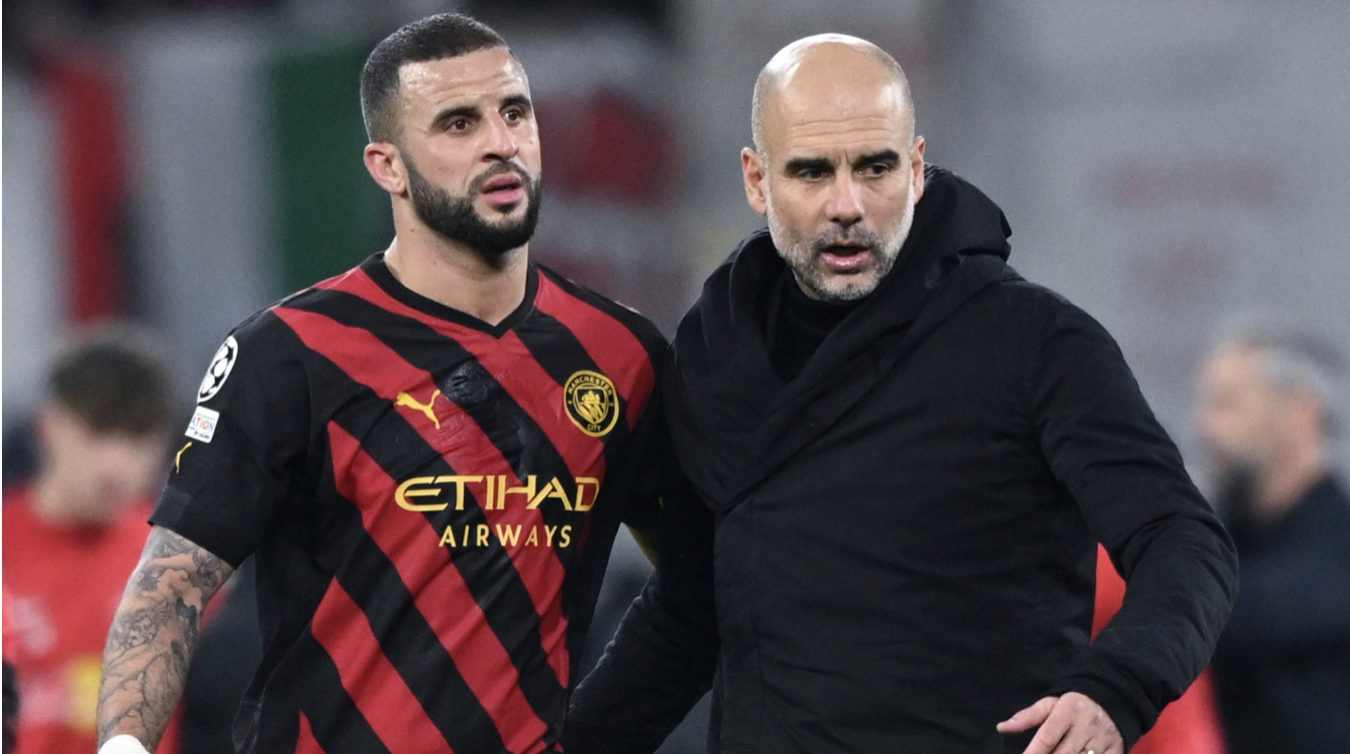
“I know they’re having a title race with Arsenal, but they’re fascinating to watch and study when you try to plan to play against them.”
Bournemouth’s Gary O’Neil will have studied City’s past two results and accept there is no shame in surrendering territory if it means getting a positive result.
Damned if he makes changes, damned if he doesn’t, winning the Premier League may seem now a by-product to this footballing artistry Guardiola views as non-negotiable, but the fire still burns beneath this constant urge to push the boundaries.
Guardiola continues to have his tactics questioned, a soundtrack that has followed him along with his trophies. Perhaps he is destined to forever be misunderstood.
On the south coast, he is ready to make his next move.
